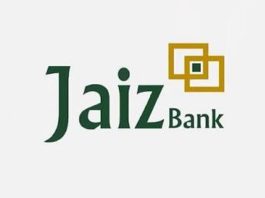Would Transcorp dividend payment erase the history or help the future?
It is amazing how Transnational Corporation of Nigeria, Transcorp, has evolved over the year. The conglomerate had been written off because of constant non-performance until baton of leadership changed hands.
Without mincing words, the conglomerate is feeling the Tony Elumelu’s management dexterity, industries wide experience and market intelligence.
It would be recalled that since 2007 when this conglomerate approach the market to raise equity, the conglomerate has paid dividend few times.
Meanwhile, those who picked the shares of the company did so for dividend expectation and capital appreciation – but none of these came.
So, there is no how street investors would have been able to recoup investment in Transcorp; a conglomerate with 40.6 billion outstanding shares.
For the first 10 years, investors gained nothing – in dividend and capital appreciation. Many would surely remember this company as one of the overhyped Initial Public Offering in Nigeria –ever!
Some investors, both wannabe and some that have their fingers glued to picking stocks wish they didn’t wish they didn’t go along with Transcorp.
Up till now, the stock has consistently underperformed the market. Now, the tide is reversing as Transcorp rising in performance.
In the last few years, Transcorp Plc joined dividend paying leagues. It may be about time to anticipate again as its directors proposed to pay 3 kobo dividend on each shares.
That translate to 2.4% yield at N1.30 share price. The company’s numbers have started looking good. It is actually better compare to what the market used to have. There have been some assets spin off.
Underperforming subsidiaries are also undergoing restructuring or at best repackaging.
The review of its audited statement for FY2018
The analysis of the numbers show that Transcorp Plc made N104.2 billion in 2018. This was 29.7% above N80.3 billion the conglomerate raked in in 2017.
The increase in business activities level jerked up cost of sales by 27.5%, below growth in turnover. Cost rose to N55.9 billion, from N43.9 billion.
This evident some level of cost cutting in 2018, driven by efficient business operation and adjustment to internal organisation.
Transcorp incurred N54.67 on every N100 sales in 2017, but the direct cost was lowered to N53.64 in 2018. Operating expenses ballooned significantly.
Between the periods, overheads expanded 30.9% from N10.4 billion to N13.6 billion while net finance cost adjusted downward, albeit marginally.
The variable nature of the conglomerate operating expenses was responsible in part to increased overhead account as business activities leaped.
Thus, with 33.1% increase in earnings before interest and tax payment, from N26 billion to N34.6 billion, and a decline in finance cost, pre-tax profit rose by 82% year on year.
Better tax position in the year also supported the bottom line as Transcorp closed the year with more than 94% year on year increase in profit after tax obligation.
Meanwhile, in the first half of 2018
While flying its comeback kite, Transcorp seems to be under heavy weight of two subsidiaries that were not performing as shown by the first half result 2018.
Though the company’s performance appeared to be stable; but asset utilisation was low. Deep dived into the book showed that two subsidiaries however cannot stand alone as income generating assets.
That means that the group portfolio assets has been half-performing. Transcorp Plc.’s cash cow, Transcorp Power Limited contributed more to the group profit in the first half, followed by the corporate centre and Hospitality business.
In term of financing, it appears that the conglomerate was supporting operations with borrowing funds and the obligation likely to put pressure on performance.
This was the case as cash flow receivables from power deal faces some systemic challenges. The company leveraged on trade payables as well as borrowed funds which attracts interest obligations.
In 2017, the effects of rising operating cost which further strengthened by finance cost had pushed the company performance to negative.
Then, similar pattern surfaced, as mounting receivables (N84.85 billion) locked down the company cash; up till the end of first quarter from N83.83 at the beginning of the year.
This impacted on financing operations. As at the end of the first half, both long and short term borrowing was more than N100 billion for a group with total net assets of N105.87 billion. This left the conglomerate debt to equity ratio at astronomically high level.
The breakdown of the group debt accounts included N24.814 billion loans that became due in a year. This means that both interest obligation and principal sum would have to be paid.
There was a short term unsecured bond of N6.116 billion that fall due in the same period. Making total borrowing falling due in the year clocked N30.93 billion.
Transcorp accessed N55.283 billion long term financing from bank in addition to N14.571 billion unsecured bond.
While pressure on financing mix was observed, more worrisome was declined liquidity ratio as shown in the first half.
The conglomerate current ratio was less than 1 (0.9013) while quick ratio set at 0.8556.
This implies that the group cannot really meet its short term obligations with its current assets position without resulting to borrowing.
And that was what Transcorp did in FY2018. First half result in 2018 was impressive, and the effect impacted the full year result. Thumb up for strategic manoeuvre.
Profit performance actually beats market expectations and analysts’ estimates. Then, the question of sustainability surfaced but the full year result just ally the fear.
Due to its historical performance, many shareholders have given up on the conglomerates and sentiment has been generally low.
Transcorp Plc.’s total equity investment scaled up to N105.866 billion in the first half 2018 from N95.707 billion at the end of financial year 2017.
The leap that was attributed to increase in company’s reserves, earnings and non-controlling interest came strong. This represents 10.61% growth in net assets.
In a similar vein, the company had N290.262 billion in total assets. At the beginning of the year, the company total assets had settled at N285.522 billion.
This indicates a marginally increase of less than 2% in total assets in six months. Total assets however hit N297.1 billion for the full year.
Looking at investing activities of the company, it was observed that Transcorp Plc made additional investment in property, plant and equipment worth N5.928 billion in the first half of 2018 and but disposed some of the company’s assets worth N6.82 billion.
Conversely, the group total liabilities went down from N189.814 billion from the beginning of the year to N184.395 billion six months after.
This represents a 2.85% reduction in the period. The fact that the group total assets expanded while total liabilities went down strengthened net assets recorded.
Total liabilities on its financial position did hit N191.8 billion at the end of 2018.
It is striking to know that of the key four segments where Transcorp Plc. was competing apart from its corporate centre, only two were performing while other two seems to be in coma; at least up till the end of first half 2018.
It is not clear what the management intends to do with these non-performing assets but they seem to burning cash.
The signal for improve performance became strong in the first half. Transcorp Plc made N10.875 billion post tax profit as against N4.163 billion the company declared in the comparable period in 2017. That translates to a whopping 161.23% increase year on year.
The conglomerate comprises companies in the hospitality, Oil and Gas, Agro-Allied as well as Power sector. It has a profit generating corporate centre.
The recorded increase in revenue came from two performing assets; power and hospitality segment while both Agro-Allied and Oil and Gas business didn’t make any contribution safe for N4.278 billion added by the corporate centre.
While the trouble children, Agro-Allied and Oil & Gas segments have negative net assets, Agro-Allied segment assets has declined in the last 12-months while its liabilities seems to be on the increase.
Thus, value of its negative net assets, for which it means the unit is trading out of money, went up.
The two moribund segment in Transcorp portfolio have liabilities that exceeded their individual class assets. For example, Oil and gas net assets clinched negative just as its agro-allied business at N317.096 million and N1.458 billion respectively.
Base on the content in its financial statement, for about two years, both oil and gas and agro-allied segment were not performing.
At the end of the first half of 2018, the company revenue expanded by 58.27% from N34.173 billion that was made in the comparable period in 2017 to N54.089 billion.
The breakdown of the company revenue sources indicates a massive upsurge in earnings from energy sent item as well as capacity charge.
Both sources of the company’s revenue grew by 65% respectively and accounted for as much as 85% of Transcorp revenue. Then, the company’s cost of sales jerked up by 52.93% from N19.3 billion to N29.516 billion.
Though accounted for about 84% of the company cost of sales, money expended to acquired natural gas and fuel increased by 63.06% from N15.189 billion to N24.768 billion between the periods.
Staff costs was increased by 69.04% from N1.108 billion to N1.873 billion. This left Transcorp with 45.43% gross margin or N24.573 billion, out of which the companies overhead for the period were settled.
Apart from administrative expenses of N7.617 billion, the company also offset the N13.314 billion lost that the group sustained from FX transactions.
This left the group profit at N17.346 billion having added the sum of N404.57 million made from other income sources.
In the first six months in 2018, Transcorp has used N5.01 billion to service loans compare with N4.701 billion it used in the comparable period in 2017.
Read Also: Unilever Nigeria Trouble Deepens as Revenue, Profit Drop Big
The company made N472.5 million finance income while additional N861.792 million FX loss was sustained, but this time on financing activities (borrowing) which brought boiled down to N5.402 billion as net finance cost.
This was offset against the group operating profit as profit before tax settled at N11.944 billion.
Transcorp has positive net cash position in the first six months of operation in 2018 as shown in the company’s cash flow statement.
In the period, the company net cash generated from operations was valued at N22.341 billion but the company free cash flow berthed at N4.97 billion after both investing (which took out N5.455 billion) and financing activities (N17.139 billion) were taken together.
At the end of 2017, Transcorp had N5.598 billion in cash.
Compare to N104.2 billion in 2018, Transcorp revenue clocked N80.28 billion in 2017.Coming from loss position in 2016, the company closed FY2017 with profit before tax of N12.3 billion as against N5.93 billion loss sustained in 2016.
The company paid 2 kobo per share in 2017 and raised it to 3 kobo in 2018.
Would Transcorp dividend payment erase the history or help the future?




